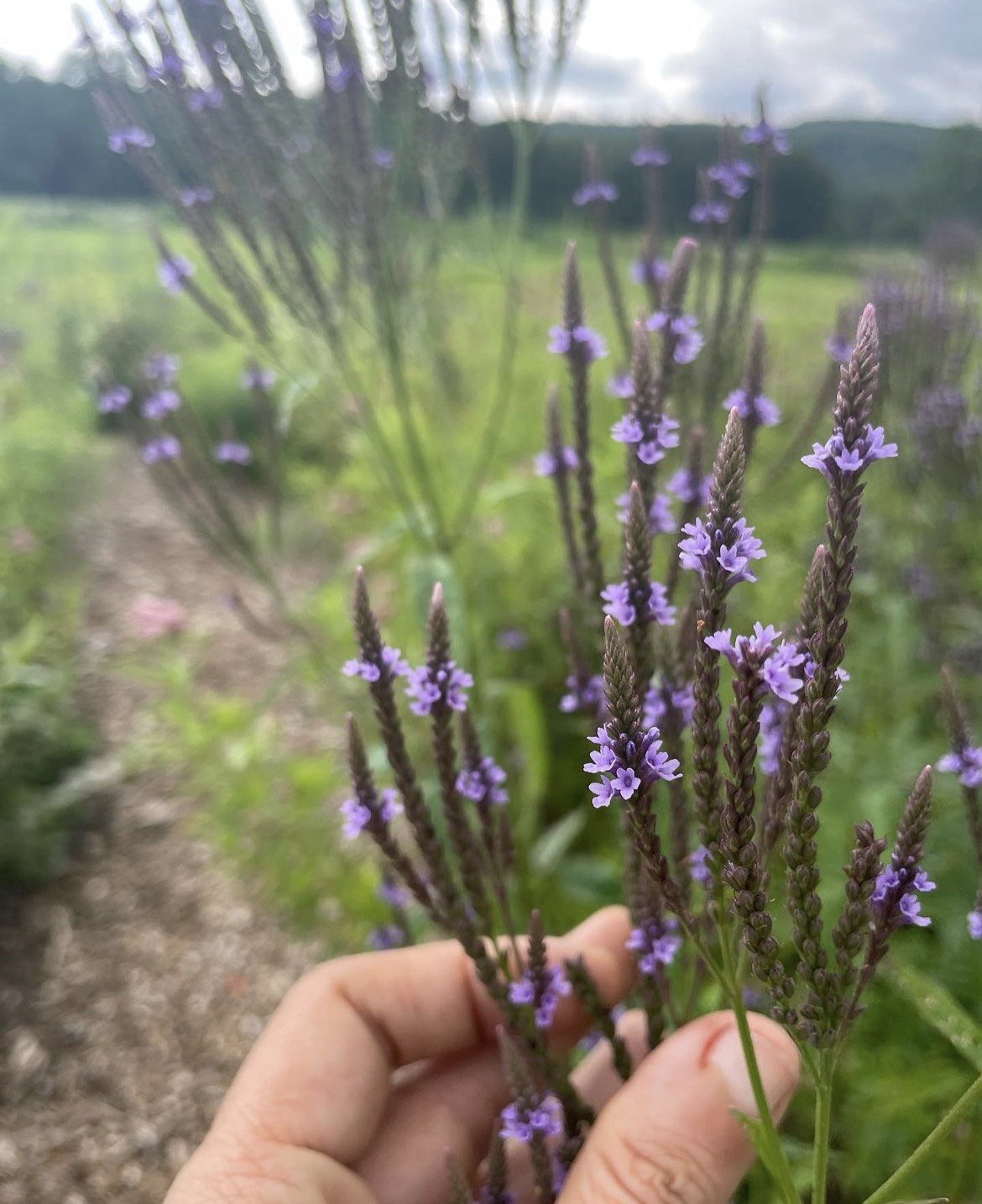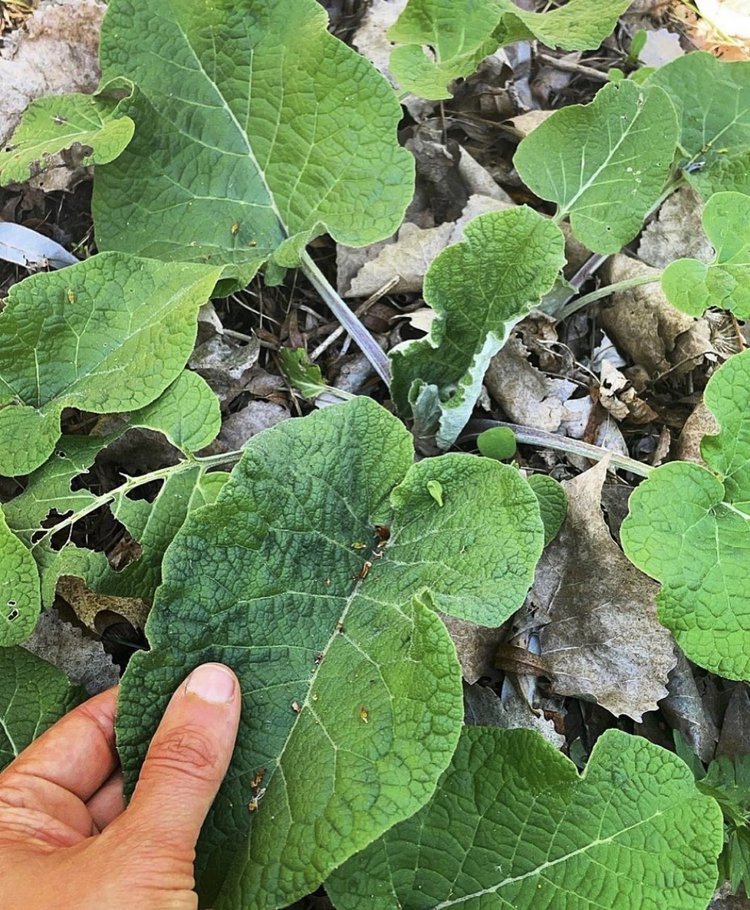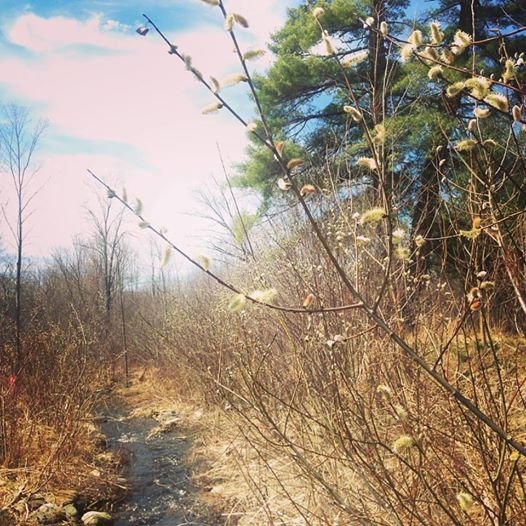Fall Foraging & Feasting: Seeds, Fruits, Roots, Barks & More
The fall is an excellent season for foraging if you know what you’re looking for. It’s a season for collecting fruits, seeds, roots, barks, nuts, mushrooms, and even wild greens. I actually think of it as a “second spring” in the sense that many of our spring herbs, like Violet lf, Dandelion lf, Garlic Mustard, Chickweed, and more, revel in the cool and moist weather of the fall that’s so similar to the spring weather, in which these plants also thrive.
In this post I share some of my favorite herbs to forage in the fall. And I also share the recipes I made for my “Fall Foraging & Wild Food Dishes” workshop I taught this past week at Just Roots Community Farm. These are all nut, gluten and dairy free to accommodate attendees dietary needs!
Connecting with the Land Through “Invasive” Plants
If you think about it, can a plant actually invade? Isn’t that anthropomorphism, which science cautions against adopting and supposedly rejects? And yet, ecology now classifies certain plants- including even some considered native- as “invasive.” I feel this notion is misguided. It perpetuates the “man vs nature” mythos and drives habitat destruction, the poisoning of the earth (supposedly for the sake of the environment) and separates us even farther from nature. It also positions humans as experts when we’ve been around a mere 300,000 years at most, which is a blink of an eye compared to plants.
This spring I was interviewed on my thoughts on plants labelled “invasive” for the Healing of Power of Plants Summit and below is a recording of the interview.
And if you’d rather listen to the interview you can do so here
Principles of Bioregional Herbalism: Sinking Into the Medicine of Place
Many of us are familiar with the local food movement, but what about the local medicine movement?
Bioregional herbalism provides us with the framework to develop a system of healthcare that is place and plant-based, ecologically sound, and can operate independently from the profit-driven system of allopathic medicine in this country. For any individual who understands the importance of living with a light ecological footprint on the earth, bioregional herbalism offers an opportunity to align one’s values with one’s healthcare choices.
Sassafras Leaf Honey
I'm deeply enamored by the fall foliage, but even more so when I can make medicine with it. The Sassafras tree (Sassafras albidum) puts on such a show in the fall and, although the essential oils in the leaves are certainly more concentrated in the summer, the mucilage is still potent in the fall and lots of their aromatic and unique flavor is still present. I love gathering them now- when the trees are about to drop them anyway and they're in their full autumnal glory.- and make a potent and delicious herbal honey with them. You can even gather recently fallen leaves for medicine!
Where does Star Magnolia belong?
Where does Star Magnolia belong? And for that matter, how do we decide where a plant "should” and “shouldn't” be?
My hot take? We don't.
The Brain-Boosting Properties of Lion’s Mane Mushroom & Making a Medicinal Mushroom Double Extract
Lion’s Mane Mushroom is a powerful nootropic, has a special talent for helping heal damaged nerves, supports mood and helps alleviate depression, and possesses the famous beta-glucan polysaccharides that make medicinal mushrooms such potent immunomodulators.
The Winter Herbal Medicine Cabinet
In thinking about herbs and preparations to have on hand during the winter months I find it helpful to think about classes of herbs by way of their herbal actions. Here are a few herbal actions to consider when picking herbs for your home winter apothecary and some of my favorite herbs to have on hand (but these lists are not at all exhaustive):
Rest & Digest Bitters and the Medicine of Blue Vervain
In the herb world there's kind of an inside joke that's basically this- some people are "Blue Vervain" people, meaning they're pretty Type A, love lists and order and control (but often get stressed-out trying to control everything), tend towards holding stress in their bodies- particularly the neck and shoulders- and are often a "work hard, play hard" type. In the Ayurvedic framework these are folks with LOTS of Pitta.
Honeyed Lemon Balm, Rose & Strawberry Jam
Rose season is quite possibly my most highly anticipated “plant season” of the year. Many of us bioregional herbalists mark the year in this way…April is Dandelion and Violet, May is Nettles, and Rose season here begins in June. Whether it’s Beach Rose growing wild on the coast, Wild Rose growing every which way with the brambles in the hedges, or a fragrant antique Rose growing in a hidden garden- I love them all.
Herbal Vinegars, Oxymels & Spring Tonics
I first became interested in diversifying my apothecary with vinegar and honey-based preparations when, after a certain point, it started to feel like I was just dumping vodka on everything! And the more I began working with bioregionally abundant herbs, the more I wanted to start exploring bioregionally abundant menstruums (herbal vocab word for whatever you’re extracting into).
Spring Tree Medicine: Willow, Wild Cherry, Sweet Birch, Sugar Maple & Alder
Spring is one of the classic times to work with tree medicine, during the season when the sap is rising, the vascular cambium is active with sap and nutrients, and the trees are waking back up. Below I share some of my favorite trees to work with in the spring and my hope is that even if you don’t have all of these trees in your bioregion, you at least have a few.
Barberry Medicine
Barberry (Berberis spp) is a medicine I truly feel all of us should know. This ubiquitous shrub is abundant, pervasive, and rich in a very special alkaloid extensively studied to have a whole host of antimicrobial properties, Berberine. This alkaloid gives Barberry its distinctive yellow roots and inner bark and is the same alkaloid that makes the famous Goldenseal so antimicrobial and gives it its golden-yellow color as well.
Wild Blueberry & Anise Hyssop Oxymel
It's blueberry season and the Anise Hyssop (Agastache foeniculum) in the garden is just going off, along with sooooo many other herbs, so I whipped-up a Blueberry & Anise Hyssop oxymel with the seasons' bounty. This recipe is kitchen medicine at its finest.
Savory Nettles & Ricotta Pie
All throughout the Mediterranean and SWANA region various iterations of this dish occur- the combination of greens, herbs, eggs, and some kind of cheese (often ricotta or feta) for the ultimate peasant food that's deeply nourishing and draws on seasonally and bioregionally abundant ingredients.
Sustainably Harvesting Conifer Resins & Conifer Resin Salve
Winter is a great time to work with and harvest conifer resin (also often referred to as pitch). It's much less sticky and viscous in the winter than other times, due to the cold temperatures, which makes it much easier to harvest! Locally, White Pine (Pinus strobus) is our most abundant conifer that produces resin and you can also find it in Balsam Fir (Abies balsamea) and Spruce species (Picea spp), with Norway Spruce (Picea abies) being our most locally abundant Spruce.
White Pine & Rosemary Nougat
At its most basic, nougat is a confection made with nuts, honey, and/or sugar, however it can also include egg whites, herbs, spices, dried fruit, and seeds depending on where it’s made. There are variations traditionally made throughout the SWANA region (Southwest Asia & North Africa), the Mediterranean, and southern Europe, and the name it’s most commonly known as in the US, nougat, comes from France.
Funghi sott'olio/ Italian Pickled Mushrooms
We’re having an amazing mushroom year, especially with Maitake/Hen of the Woods (Grifola frondosa) and when I have an abundance this is one of my favorite ways to put up the harvest! This is a traditional Italian way of preserving mushrooms- the way mushrooms on an antipasto plate are commonly preserved.
Purple Loosestrife Medicine
I wanted to share with you all about a bioregionally abundant plant that’s often misunderstood, Purple Loosestrife (Lythrum salicaria). You’ll see it flowering right now throughout the northeast, midwest, and pacific northwest, especially in wet medaows, roadsides, lakesides, estuaries and marshes.
Elder Flower & Rose Wild Soda
I'm a big fan of wild sodas in the warmer months when I don't find myself as drawn to tea. They have a sweet, sour, and fizzy flavor similar to kombucha, which makes sense since they're both fermented and probiotic. Another cool thing about wild sodas is that they can be made with entirely local ingredients if you're using local honey!
Proper Harvesting of Reishi Mushroom
Here in the northeast we have lots of Reishi Mushroom (Ganoderma tsugae) and even though it’s abundant I feel it’s still important to harvest it properly if you’re going to be doing so! Whenever possible please please please harvest once the mushroom has matured and released its spores so it can proliferate and spread!



















